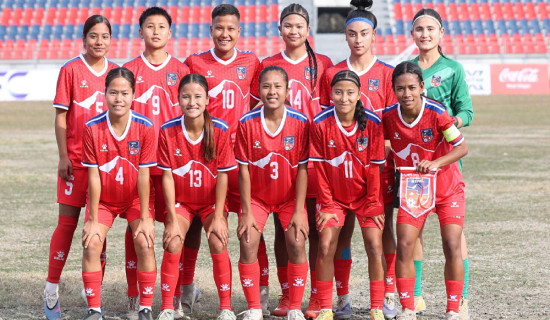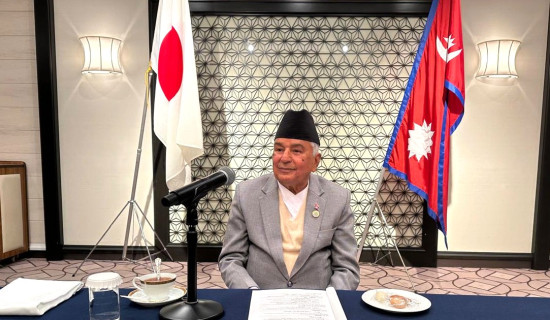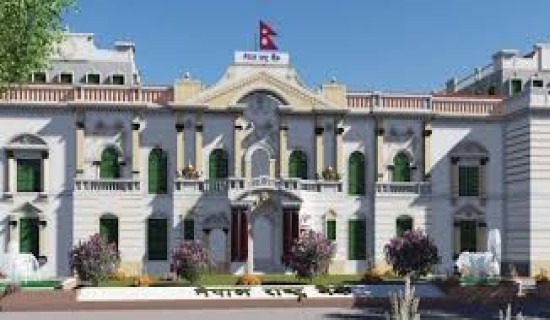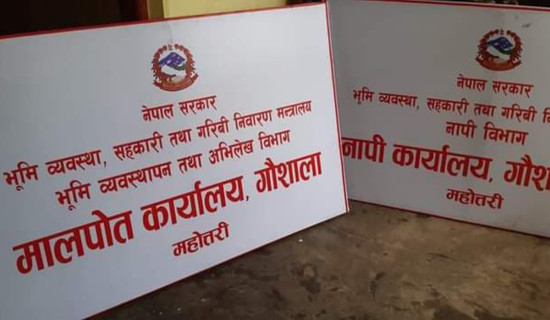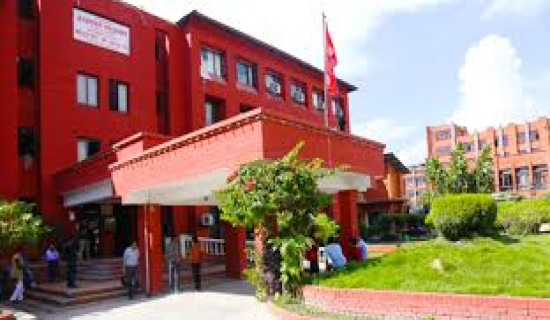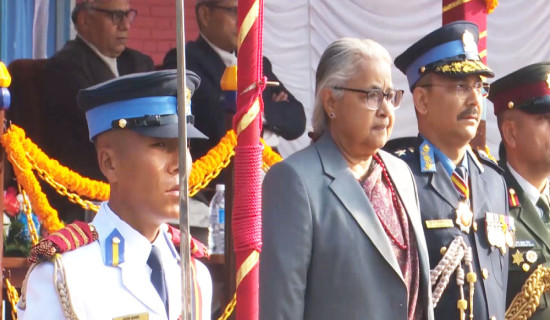- Tuesday, 3 February 2026
Bid To Improve Education Sector
The government has completed one hundred days since the NC-UML coalition took over the reins of the government. Prime Minister KP Sharma Oli, who is heading the coalition government, has recounted the hundred day achievements of the government claiming that at least seventy per cent of the targeted actions have been accomplished during the period. Ministers in the coalition cabinet have articulated a slew of major and minor successes in their respective ministries achieved one after the other.
Education Minister Bidhya Bhattarai has also outlined a list of achievements since she took over the charge of the ministry. She highlighted the action plan being finalised to implement free and compulsory education at the school level as one of the major outputs of her actions. Though the incumbent education minister appears committed to bring about reforms in the education sector, the school education remains languished in a mess which requires a massive resource investment and governance reforms.
Conflicts
The school education is riddled with conflicts in which an array of stakeholders including local governments, teachers and bureaucracy are involved. This conflict has been responsible for an impasse in the enactment of the education act in the national legislature, among others. However, despite confusions and conflicts in the policy realm, one can notice some improvements being made in putting up physical infrastructures in the schools.
Recently this writer had an opportunity to visit at least two community schools at Arghakhanchi, lying on the outer fringe of the district. The school building and other infrastructures looked almost adequate and sufficient by our own standards. The schools had spacious and comfortable classrooms, toilets and bathrooms, midday meal support and so on, which speak of the improving situation of wherewithal necessary for better learning outcomes.
However, have these gradually improving and incessantly upgraded school infrastructures, resources and teaching logistics yielded corresponding impact to better secure the learning achievements of the students enrolled in these schools? Are the teachers responsible for taking care of the kids as well as their effective emotional and intellectual development doing their job properly and honestly? Do they possess necessary knowledge and aptitude for engaging with students in a compassionate way? These are some of the important questions that require some careful consideration before delving into the questions of the school education administration and management.
Critically speaking, school education in Nepal is in the state of mess. The education sector is passing through a kind of transitional phase characterised by the contradiction between decentralised formal policy arrangement and centralised tendencies of the policy implementers offering resistance to the devolution and downward accountability process. This is further exacerbated and complicated by the lack of awareness on the part of the local government officials about the seriousness and gravity of their constitutional obligations on school education. Moreover, local governments are yet to take full cognizance of the need for an effective utilisation of the resources available at their disposal.
The federal constitution entrusts local government the roles and functions expressly related with, among others, school education management and implementation. But the central government appears fully reluctant to transfer to local government the cutting edge authority related with school education management and administration. The central government apparatuses at Singha Durbar and Sanothimi are fully inclined to keep essential authority at their disposal without being challenged by any quarters.
According to legal provision stipulated in line with the federal arrangement, the central government has been required to disband the existing agencies like district education offices and transfer human resources and assets to the local governments - Gaupalika and Nagarpalika. But after more than a decade following the implementation of federal constitution, the important education-related authority has been more or less retained with the apparatus of the central government. Former district education offices (DEOs) have been reincarnated as district education coordination and development units and they do more or less act as the clearing agents of the Ministry of Education of the central government.
Arguing that local governments suffer from capacity deficits to look after and govern school education effectively, the central government wields an excuse to exercise the key allocation of roles and authority. The local government capacity deficit has given the pretext for the central machinery to concentrate key authority only to permit the peripheral and insignificant responsibilities to be exercised by the municipalities - Gaupalikas and Nagarpalikas - at the local level. In fact, the rationale behind entrusting roles and mandates relating to secondary education to local government is that the schools operated through decentralised arrangement perform better and deliver education services efficiently and effectively.
Accountability
An effective monitoring and supervision of the teachers through community engagement and participation is possible at the local level. Local government can address the education-related service delivery issues more effectively. Similarly, accountability of teachers can be better ensured to improve the learning conditions and outcomes. But the federal government has manipulated the situation to one's own favour on the ground that the local governments needed capacity development to take full charge of the situation.
The constitutional intent to devolve the school education-related function upon the local government constitutes undoubtedly a big leap forward for decentralised delivery of the education services and accountability of teachers. But for this to implement in an effective way, local governments also need to be made truly capable and responsible to govern the school education. Only then can they be equally capable to respond to imperatives of popular legitimacy and participatory democracy which constitute the important norm of decentralised governance at the local level.
(The author is presently associated with Policy Research Institute (PRI) as a senior research fellow. rijalmukti@gmail.com)










